afterLoad (456.3KB) (10.23ms)
afterInitialise (1.27MB) (93.12ms)
afterRoute (827.58KB) (22.89ms)
beforeRenderComponent com_content (35.1KB) (205μs)
Before Access::preloadComponents (all components) (67.27KB) (430μs)
After Access::preloadComponents (all components) (98.07KB) (8.27ms)
Before Access::preloadPermissions (com_content) (1.6KB) (14μs)
After Access::preloadPermissions (com_content) (3.31MB) (28.71ms)
Before Access::getAssetRules (id:62 name:com_content.category.20) (130.65KB) (108μs)
After Access::getAssetRules (id:62 name:com_content.category.20) (7.38KB) (50μs)
Before Access::getAssetRules (id:8 name:com_content) (51.77KB) (37.85ms)
After Access::getAssetRules (id:8 name:com_content) (6.17KB) (28μs)
afterRenderComponent com_content (1.54MB) (231ms)
afterDispatch (32.39KB) (23.03ms)
beforeRenderRawModule mod_articles_category (READ MORE...) (398.66KB) (24.74ms)
afterRenderRawModule mod_articles_category (READ MORE...) (65.75KB) (249ms)
beforeRenderRawModule mod_custom (BOOST YOUR IMMUNE DEFENSE) (6.45KB) (34μs)
afterRenderRawModule mod_custom (BOOST YOUR IMMUNE DEFENSE) (4.42KB) (189μs)
beforeRenderRawModule mod_articles_latest (Latest news) (976B) (14μs)
afterRenderRawModule mod_articles_latest (Latest news) (51.8KB) (177ms)
beforeRenderRawModule mod_tags_popular (Search) (2.09KB) (23μs)
afterRenderRawModule mod_tags_popular (Search) (27.14KB) (128ms)
beforeRenderRawModule mod_custom (the Vitamin and Mineral Guide) (960B) (30μs)
afterRenderRawModule mod_custom (the Vitamin and Mineral Guide) (1.02KB) (49μs)
beforeRenderRawModule mod_custom (Weight loss that works) (736B) (12μs)
afterRenderRawModule mod_custom (Weight loss that works) (928B) (23μs)
beforeRenderRawModule mod_custom (Get additionel and more detailed knowledge ) (752B) (10μs)
afterRenderRawModule mod_custom (Get additionel and more detailed knowledge ) (944B) (19μs)
beforeRenderRawModule mod_custom (Q10 goes by many names) (736B) (9μs)
afterRenderRawModule mod_custom (Q10 goes by many names) (928B) (18μs)
beforeRenderRawModule mod_custom (Check this before you buy a Q10 product) (752B) (9μs)
afterRenderRawModule mod_custom (Check this before you buy a Q10 product) (944B) (18μs)
beforeRenderRawModule mod_custom (Are you taking supplements) (736B) (9μs)
afterRenderRawModule mod_custom (Are you taking supplements) (2.28KB) (18μs)
beforeRenderRawModule mod_custom (Antiaging) (720B) (9μs)
afterRenderRawModule mod_custom (Antiaging) (912B) (17μs)
beforeRenderRawModule mod_custom (Exercise) (720B) (9μs)
afterRenderRawModule mod_custom (Exercise) (912B) (17μs)
beforeRenderRawModule mod_custom (Useful Links) (720B) (9μs)
afterRenderRawModule mod_custom (Useful Links) (1.02KB) (3.07ms)
beforeRenderModule mod_articles_category (READ MORE...) (268.2KB) (7.26ms)
afterRenderModule mod_articles_category (READ MORE...) (1.25KB) (66μs)
beforeRenderModule mod_custom (BOOST YOUR IMMUNE DEFENSE) (6.81KB) (16μs)
afterRenderModule mod_custom (BOOST YOUR IMMUNE DEFENSE) (1.28KB) (26μs)
beforeRenderModule mod_articles_latest (Latest news) (592B) (11μs)
afterRenderModule mod_articles_latest (Latest news) (1.27KB) (21μs)
beforeRenderModule mod_tags_popular (Search) (1.73KB) (11μs)
afterRenderModule mod_tags_popular (Search) (1.27KB) (20μs)
beforeRenderModule mod_custom (the Vitamin and Mineral Guide) (1.31KB) (9μs)
afterRenderModule mod_custom (the Vitamin and Mineral Guide) (1.28KB) (23μs)
beforeRenderModule mod_custom (Weight loss that works) (336B) (10μs)
afterRenderModule mod_custom (Weight loss that works) (1.27KB) (19μs)
beforeRenderModule mod_custom (Get additionel and more detailed knowledge ) (368B) (9μs)
afterRenderModule mod_custom (Get additionel and more detailed knowledge ) (1.3KB) (19μs)
beforeRenderModule mod_custom (Q10 goes by many names) (336B) (9μs)
afterRenderModule mod_custom (Q10 goes by many names) (1.27KB) (19μs)
beforeRenderModule mod_custom (Check this before you buy a Q10 product) (352B) (9μs)
afterRenderModule mod_custom (Check this before you buy a Q10 product) (1.28KB) (19μs)
beforeRenderModule mod_custom (Are you taking supplements) (352B) (9μs)
afterRenderModule mod_custom (Are you taking supplements) (1.28KB) (18μs)
beforeRenderModule mod_custom (Antiaging) (336B) (9μs)
afterRenderModule mod_custom (Antiaging) (1.27KB) (19μs)
beforeRenderModule mod_custom (Exercise) (336B) (9μs)
afterRenderModule mod_custom (Exercise) (1.25KB) (18μs)
beforeRenderModule mod_custom (Useful Links) (336B) (9μs)
afterRenderModule mod_custom (Useful Links) (3.77KB) (19μs)
beforeRenderRawModule mod_menu (Main Menu - English) (37.51KB) (2.81ms)
afterRenderRawModule mod_menu (Main Menu - English) (190.16KB) (5.74ms)
beforeRenderModule mod_menu (Main Menu - English) (720B) (5μs)
afterRenderModule mod_menu (Main Menu - English) (4.86KB) (62μs)
beforeRenderRawModule mod_languages (Sprogskift) (3.94KB) (21μs)
afterRenderRawModule mod_languages (Sprogskift) (21.66KB) (4.59ms)
beforeRenderModule mod_languages (Sprogskift) (720B) (5μs)
afterRenderModule mod_languages (Sprogskift) (5.31KB) (21μs)
beforeRenderRawModule mod_finder () (6.34KB) (20μs)
afterRenderRawModule mod_finder () (132.96KB) (3.61ms)
beforeRenderModule mod_finder () (704B) (4μs)
afterRenderModule mod_finder () (3.29KB) (35μs)
beforeRenderRawModule mod_custom () (6.62KB) (142μs)
afterRenderRawModule mod_custom () (26.52KB) (1.76ms)
beforeRenderModule mod_custom () (704B) (6μs)
afterRenderModule mod_custom () (1.23KB) (51μs)
beforeRenderRawModule mod_menu (Main Menu - English) (5.07KB) (103μs)
afterRenderRawModule mod_menu (Main Menu - English) (6.3KB) (741μs)
beforeRenderModule mod_menu (Main Menu - English) (720B) (3μs)
afterRenderModule mod_menu (Main Menu - English) (1.25KB) (52μs)
beforeRenderRawModule mod_languages (Sprogskift Mobil) (912B) (16μs)
afterRenderRawModule mod_languages (Sprogskift Mobil) (3.89KB) (4.7ms)
beforeRenderModule mod_languages (Sprogskift Mobil) (720B) (5μs)
afterRenderModule mod_languages (Sprogskift Mobil) (1.27KB) (35μs)
beforeRenderRawModule mod_finder () (2.3KB) (12μs)
afterRenderRawModule mod_finder () (6.29KB) (1.45ms)
beforeRenderModule mod_finder () (704B) (4μs)
afterRenderModule mod_finder () (1.23KB) (44μs)
beforeRenderRawModule mod_custom () (8.66KB) (182μs)
afterRenderRawModule mod_custom () (904B) (2.19ms)
beforeRenderModule mod_custom () (704B) (6μs)
afterRenderModule mod_custom () (2.43KB) (32μs)
beforeRenderRawModule mod_custom () (688B) (102μs)
afterRenderRawModule mod_custom () (896B) (151μs)
beforeRenderModule mod_custom () (704B) (3μs)
afterRenderModule mod_custom () (2.71KB) (25μs)
afterRender (282.89KB) (17.17ms)
| 1 x afterRenderRawModule mod_articles_category (READ MORE...) (65.75KB) (22.8%) | 249.04ms |
| 1 x afterRenderComponent com_content (1.54MB) (21.14%) | 230.90ms |
| 1 x afterRenderRawModule mod_articles_latest (Latest news) (51.8KB) (16.18%) | 176.68ms |
| 1 x afterRenderRawModule mod_tags_popular (Search) (27.14KB) (11.74%) | 128.22ms |
| 1 x afterInitialise (1.27MB) (8.53%) | 93.12ms |
| 1 x Before Access::getAssetRules (id:8 name:com_content) (51.77KB) (3.47%) | 37.85ms |
| 1 x After Access::preloadPermissions (com_content) (3.31MB) (2.63%) | 28.71ms |
| 1 x beforeRenderRawModule mod_articles_category (READ MORE...) (398.66KB) (2.26%) | 24.74ms |
| 1 x afterDispatch (32.39KB) (2.11%) | 23.03ms |
| 1 x afterRoute (827.58KB) (2.1%) | 22.89ms |
| 1 x afterRender (282.89KB) (1.57%) | 17.17ms |
| 1 x afterLoad (456.3KB) (0.94%) | 10.23ms |
| 1 x After Access::preloadComponents (all components) (98.07KB) (0.76%) | 8.27ms |
| 1 x beforeRenderModule mod_articles_category (READ MORE...) (268.2KB) (0.66%) | 7.26ms |
| 1 x afterRenderRawModule mod_menu (Main Menu - English) (190.16KB) (0.53%) | 5.74ms |
| 1 x afterRenderRawModule mod_languages (Sprogskift Mobil) (3.89KB) (0.43%) | 4.70ms |
| 1 x afterRenderRawModule mod_languages (Sprogskift) (21.66KB) (0.42%) | 4.59ms |
| 1 x afterRenderRawModule mod_finder () (132.96KB) (0.33%) | 3.61ms |
| 1 x afterRenderRawModule mod_custom (Useful Links) (1.02KB) (0.28%) | 3.07ms |
| 1 x beforeRenderRawModule mod_menu (Main Menu - English) (37.51KB) (0.26%) | 2.81ms |
| 1 x afterRenderRawModule mod_custom () (904B) (0.2%) | 2.19ms |
| 1 x afterRenderRawModule mod_custom () (26.52KB) (0.16%) | 1.76ms |
| 1 x afterRenderRawModule mod_finder () (6.29KB) (0.13%) | 1.45ms |
| 1 x afterRenderRawModule mod_menu (Main Menu - English) (6.3KB) (0.07%) | 741μs |
| 1 x Before Access::preloadComponents (all components) (67.27KB) (0.04%) | 430μs |
| 1 x beforeRenderComponent com_content (35.1KB) (0.02%) | 205μs |
| 1 x afterRenderRawModule mod_custom (BOOST YOUR IMMUNE DEFENSE) (4.42KB) (0.02%) | 189μs |
| 1 x beforeRenderRawModule mod_custom () (8.66KB) (0.02%) | 182μs |
| 1 x afterRenderRawModule mod_custom () (896B) (0.01%) | 151μs |
| 1 x beforeRenderRawModule mod_custom () (6.62KB) (0.01%) | 142μs |
| 1 x Before Access::getAssetRules (id:62 name:com_content.category.20) (130.65KB) (0.01%) | 108μs |
| 1 x beforeRenderRawModule mod_menu (Main Menu - English) (5.07KB) (0.01%) | 103μs |
| 1 x beforeRenderRawModule mod_custom () (688B) (0.01%) | 102μs |
| 1 x afterRenderModule mod_articles_category (READ MORE...) (1.25KB) (0.01%) | 66μs |
| 1 x afterRenderModule mod_menu (Main Menu - English) (4.86KB) (0.01%) | 62μs |
| 1 x afterRenderModule mod_menu (Main Menu - English) (1.25KB) (0%) | 52μs |
| 1 x afterRenderModule mod_custom () (1.23KB) (0%) | 51μs |
| 1 x After Access::getAssetRules (id:62 name:com_content.category.20) (7.38KB) (0%) | 50μs |
| 1 x afterRenderRawModule mod_custom (the Vitamin and Mineral Guide) (1.02KB) (0%) | 49μs |
| 1 x afterRenderModule mod_finder () (1.23KB) (0%) | 44μs |
| 1 x afterRenderModule mod_finder () (3.29KB) (0%) | 35μs |
| 1 x afterRenderModule mod_languages (Sprogskift Mobil) (1.27KB) (0%) | 35μs |
| 1 x beforeRenderRawModule mod_custom (BOOST YOUR IMMUNE DEFENSE) (6.45KB) (0%) | 34μs |
| 1 x afterRenderModule mod_custom () (2.43KB) (0%) | 32μs |
| 1 x beforeRenderRawModule mod_custom (the Vitamin and Mineral Guide) (960B) (0%) | 30μs |
| 1 x After Access::getAssetRules (id:8 name:com_content) (6.17KB) (0%) | 28μs |
| 1 x afterRenderModule mod_custom (BOOST YOUR IMMUNE DEFENSE) (1.28KB) (0%) | 26μs |
| 1 x afterRenderModule mod_custom () (2.71KB) (0%) | 25μs |
| 1 x beforeRenderRawModule mod_tags_popular (Search) (2.09KB) (0%) | 23μs |
| 1 x afterRenderRawModule mod_custom (Weight loss that works) (928B) (0%) | 23μs |
| 1 x afterRenderModule mod_custom (the Vitamin and Mineral Guide) (1.28KB) (0%) | 23μs |
| 1 x afterRenderModule mod_articles_latest (Latest news) (1.27KB) (0%) | 21μs |
| 1 x beforeRenderRawModule mod_languages (Sprogskift) (3.94KB) (0%) | 21μs |
| 1 x afterRenderModule mod_languages (Sprogskift) (5.31KB) (0%) | 21μs |
| 1 x afterRenderModule mod_tags_popular (Search) (1.27KB) (0%) | 20μs |
| 1 x beforeRenderRawModule mod_finder () (6.34KB) (0%) | 20μs |
| 1 x afterRenderRawModule mod_custom (Get additionel and more detailed knowledge ) (944B) (0%) | 19μs |
| 1 x afterRenderModule mod_custom (Weight loss that works) (1.27KB) (0%) | 19μs |
| 1 x afterRenderModule mod_custom (Get additionel and more detailed knowledge ) (1.3KB) (0%) | 19μs |
| 1 x afterRenderModule mod_custom (Check this before you buy a Q10 product) (1.28KB) (0%) | 19μs |
| 1 x afterRenderModule mod_custom (Antiaging) (1.27KB) (0%) | 19μs |
| 1 x afterRenderModule mod_custom (Q10 goes by many names) (1.27KB) (0%) | 19μs |
| 1 x afterRenderModule mod_custom (Useful Links) (3.77KB) (0%) | 19μs |
| 1 x afterRenderRawModule mod_custom (Check this before you buy a Q10 product) (944B) (0%) | 18μs |
| 1 x afterRenderRawModule mod_custom (Are you taking supplements) (2.28KB) (0%) | 18μs |
| 1 x afterRenderModule mod_custom (Exercise) (1.25KB) (0%) | 18μs |
| 1 x afterRenderRawModule mod_custom (Q10 goes by many names) (928B) (0%) | 18μs |
| 1 x afterRenderModule mod_custom (Are you taking supplements) (1.28KB) (0%) | 18μs |
| 1 x afterRenderRawModule mod_custom (Antiaging) (912B) (0%) | 17μs |
| 1 x afterRenderRawModule mod_custom (Exercise) (912B) (0%) | 17μs |
| 1 x beforeRenderModule mod_custom (BOOST YOUR IMMUNE DEFENSE) (6.81KB) (0%) | 16μs |
| 1 x beforeRenderRawModule mod_languages (Sprogskift Mobil) (912B) (0%) | 16μs |
| 3 x beforeRenderModule mod_custom () (704B) (0%) | 15μs |
| 1 x Before Access::preloadPermissions (com_content) (1.6KB) (0%) | 14μs |
| 1 x beforeRenderRawModule mod_articles_latest (Latest news) (976B) (0%) | 14μs |
| 1 x beforeRenderRawModule mod_custom (Weight loss that works) (736B) (0%) | 12μs |
| 1 x beforeRenderRawModule mod_finder () (2.3KB) (0%) | 12μs |
| 1 x beforeRenderModule mod_articles_latest (Latest news) (592B) (0%) | 11μs |
| 1 x beforeRenderModule mod_tags_popular (Search) (1.73KB) (0%) | 11μs |
| 1 x beforeRenderModule mod_custom (Weight loss that works) (336B) (0%) | 10μs |
| 1 x beforeRenderRawModule mod_custom (Get additionel and more detailed knowledge ) (752B) (0%) | 10μs |
| 1 x beforeRenderRawModule mod_custom (Q10 goes by many names) (736B) (0%) | 9μs |
| 1 x beforeRenderRawModule mod_custom (Check this before you buy a Q10 product) (752B) (0%) | 9μs |
| 1 x beforeRenderRawModule mod_custom (Antiaging) (720B) (0%) | 9μs |
| 1 x beforeRenderRawModule mod_custom (Exercise) (720B) (0%) | 9μs |
| 1 x beforeRenderRawModule mod_custom (Useful Links) (720B) (0%) | 9μs |
| 1 x beforeRenderModule mod_custom (Q10 goes by many names) (336B) (0%) | 9μs |
| 1 x beforeRenderModule mod_custom (Check this before you buy a Q10 product) (352B) (0%) | 9μs |
| 1 x beforeRenderModule mod_custom (Are you taking supplements) (352B) (0%) | 9μs |
| 1 x beforeRenderModule mod_custom (Antiaging) (336B) (0%) | 9μs |
| 1 x beforeRenderModule mod_custom (Useful Links) (336B) (0%) | 9μs |
| 1 x beforeRenderRawModule mod_custom (Are you taking supplements) (736B) (0%) | 9μs |
| 1 x beforeRenderModule mod_custom (the Vitamin and Mineral Guide) (1.31KB) (0%) | 9μs |
| 1 x beforeRenderModule mod_custom (Get additionel and more detailed knowledge ) (368B) (0%) | 9μs |
| 1 x beforeRenderModule mod_custom (Exercise) (336B) (0%) | 9μs |
| 2 x beforeRenderModule mod_finder () (704B) (0%) | 8μs |
| 2 x beforeRenderModule mod_menu (Main Menu - English) (720B) (0%) | 8μs |
| 1 x beforeRenderModule mod_languages (Sprogskift) (720B) (0%) | 5μs |
| 1 x beforeRenderModule mod_languages (Sprogskift Mobil) (720B) (0%) | 5μs |
 Migraine is a common neurological disease that reduces quality of life and results in many sick days. Migraine medication does not work for everyone and many people have adverse effects, so it makes more sense to focus on prevention. A new American study shows that diets with higher levels of omega-3 fatty acids from oily fish can reduce the frequency of migraines compared with eating an average diet. People who dislike the taste of fish can take a high-quality fish oil supplement, instead.
Migraine is a common neurological disease that reduces quality of life and results in many sick days. Migraine medication does not work for everyone and many people have adverse effects, so it makes more sense to focus on prevention. A new American study shows that diets with higher levels of omega-3 fatty acids from oily fish can reduce the frequency of migraines compared with eating an average diet. People who dislike the taste of fish can take a high-quality fish oil supplement, instead.







 When it comes to COVID-19 and other seasonal virus infections most of the focus is concentrated on vitamin D deficiency. According to a Belgian study, however, lack of selenium and zinc additionally increases the risk of infections, complications, and death, especially among patients who already suffer from chronic diseases. The scientists conclude that supplementation with selenium and zinc may help improve treatments. Selenium and zinc deficiencies are rather common and that is a problem for public health. Even with a healthy diet, it is practically impossible for Europeans to get enough selenium because of the nutrient-depleted farmland. There are also many people with zinc deficiencies due to unhealthy diets, ageing, chronic diseases, and other contributing factors. We must be much more focused on getting enough selenium and zinc, not least for the sake of preventing virus infections and other problems.
When it comes to COVID-19 and other seasonal virus infections most of the focus is concentrated on vitamin D deficiency. According to a Belgian study, however, lack of selenium and zinc additionally increases the risk of infections, complications, and death, especially among patients who already suffer from chronic diseases. The scientists conclude that supplementation with selenium and zinc may help improve treatments. Selenium and zinc deficiencies are rather common and that is a problem for public health. Even with a healthy diet, it is practically impossible for Europeans to get enough selenium because of the nutrient-depleted farmland. There are also many people with zinc deficiencies due to unhealthy diets, ageing, chronic diseases, and other contributing factors. We must be much more focused on getting enough selenium and zinc, not least for the sake of preventing virus infections and other problems.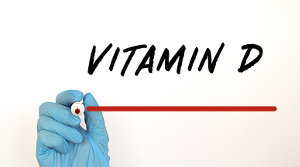
 Breast cancer is the leading cancer form among women. Even though treatments have gotten a lot better the disease still has a high death toll. A Swedish-German study shows that having low levels of
Breast cancer is the leading cancer form among women. Even though treatments have gotten a lot better the disease still has a high death toll. A Swedish-German study shows that having low levels of  The summer sun is our primary source of
The summer sun is our primary source of 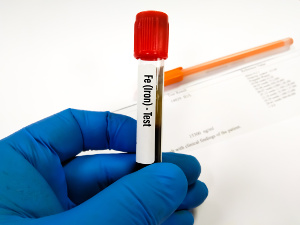 Lack of
Lack of  There is a link between depression, dementia and Alzheimer’s disease. Also, it appears that chronic stress contributes to oxidative stress and brain cell damage. In a review article that is published in the science journal Antioxidants, researchers look closer at how oxidative stress affects the brain. They also study how antioxidants can be included in the prevention and treatment of Alzheimer’s disease, and why the most promising results are seen with selenium, Q10, melatonin, vitamin E, turmeric, and polyphenols. With regard to depression, selenium, zinc, vitamin E, turmeric, and saffron have demonstrated the greatest potential.
There is a link between depression, dementia and Alzheimer’s disease. Also, it appears that chronic stress contributes to oxidative stress and brain cell damage. In a review article that is published in the science journal Antioxidants, researchers look closer at how oxidative stress affects the brain. They also study how antioxidants can be included in the prevention and treatment of Alzheimer’s disease, and why the most promising results are seen with selenium, Q10, melatonin, vitamin E, turmeric, and polyphenols. With regard to depression, selenium, zinc, vitamin E, turmeric, and saffron have demonstrated the greatest potential.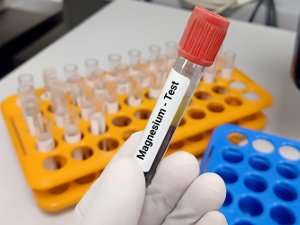 Chronic heart failure is a clinical syndrome that involves, among other things, reduced heart pumping function. The condition is often life-threatening. A new study that is published in Journal of the American Heart Association looks closer at how supplementation with
Chronic heart failure is a clinical syndrome that involves, among other things, reduced heart pumping function. The condition is often life-threatening. A new study that is published in Journal of the American Heart Association looks closer at how supplementation with 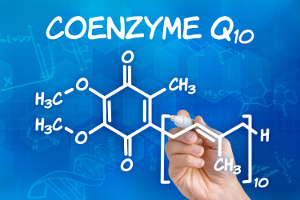
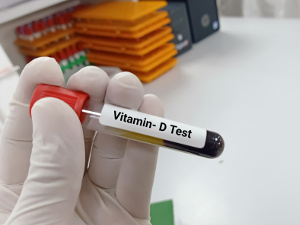 Cancer patients often have overwhelming pain that turns up as their disease progresses. The whole purpose with palliative care is to relieve the pain, and opioids such as morphine are often used for this purpose. However, according to a Swedish study published in the science journal Cancer, more and more terminal cancer patients who are given high-dosed supplements of
Cancer patients often have overwhelming pain that turns up as their disease progresses. The whole purpose with palliative care is to relieve the pain, and opioids such as morphine are often used for this purpose. However, according to a Swedish study published in the science journal Cancer, more and more terminal cancer patients who are given high-dosed supplements of  Preeclampsia is a precursor of eclampsia, a condition characterized by spasms and seizures that can be life-threatening for the expecting mother and her unborn child. According to a new review article that is published in the science journal Cureus, injections of magnesium sulfate have been tested as part of the treatment for severe preeclampsia and related spasms. This therapy form has also been introduced in Denmark. It is important during pregnancy to get enough
Preeclampsia is a precursor of eclampsia, a condition characterized by spasms and seizures that can be life-threatening for the expecting mother and her unborn child. According to a new review article that is published in the science journal Cureus, injections of magnesium sulfate have been tested as part of the treatment for severe preeclampsia and related spasms. This therapy form has also been introduced in Denmark. It is important during pregnancy to get enough  Main meals are vital for stabilizing blood sugar levels, which makes it easier to concentrate in school. Fruit and vegetables are good sources of
Main meals are vital for stabilizing blood sugar levels, which makes it easier to concentrate in school. Fruit and vegetables are good sources of  Contact sports like football and boxing are associated with frequent blows to the head that can cause physical traumas and long-term effects. However, a new study that is published in Journal of the International Society of Sports Nutrition suggests that high-dosed supplements of
Contact sports like football and boxing are associated with frequent blows to the head that can cause physical traumas and long-term effects. However, a new study that is published in Journal of the International Society of Sports Nutrition suggests that high-dosed supplements of